3.
During that time, I often turned to either Giuliana or Angela to settle myself. Giuliana seemed for obvious reasons closer, more comforting. There was the thought of Roberto that gave us a reason to spend time together and, during his long absences, we wandered around the Vomero talking about him. I observed her: she radiated a charming freshness, she always wore my aunt’s bracelet on her wrist, men rested their eyes on her and turned for a last look as if they couldn’t bear to deprive themselves of her image. I didn’t exist, beside her, and yet a knowing tone on my part or an arcane word was enough to sap her energy, so that she seemed without vitality. Once she said to me:
“You read so many books.”
“I like that better than homework.”
“I get tired right away.”
“It’s a matter of habit.”
I admitted that the passion for reading wasn’t my thing, that it came from my father: it was he who had convinced me as a child of the importance of books and the enormous value of intellectual activity.
“Once that idea gets in your mind,” I said, “you can’t free yourself from it.”
“Thank goodness. Intellectuals are good people.”
“My father isn’t good.”
“But Roberto is, and you, too.”
“I’m not an intellectual.”
“You are. You study, you know how to talk about everything, and you’re open with everyone, even Vittoria. I’m not up to it and I lose patience right away.”
I was pleased—I have to admit—with those declarations of respect. Since that was how she imagined intellectuals, I tried to live up to her expectations, partly because she didn’t like it if I merely chatted casually, as if with her fiancé I gave the best of myself and with her I limited myself to ordinary things. In fact, she urged me to speak on complex subjects, she wanted me to talk about books I had enjoyed or was enjoying. She said: tell me about them. And she showed the same anxious curiosity about films, music. Not even Angela and Ida, until then, had let me talk so much about what I loved, what to me was not an obligation but a pastime. School had never taken notice of the disorderly jumble of interests that came from reading, and none of my classmates had ever wanted me to recount—just to give an example—the plot of Tom Jones . So we got along well, in that phase. We met often, I waited for her at the exit of the Montesanto funicular, she came up to the Vomero as if it were a foreign country where she was happily on vacation. We went from Piazza Vanvitelli to Piazza degli Artisti and back, paying no attention to the people on the street, the traffic, the shops, because I became absorbed in the pleasure of beguiling her with names, titles, stories, and she seemed to see only what I had seen, reading or at the movies or listening to music.
In Roberto’s absence, and in the company of his fiancée, I played at being the custodian of vast learning, and Giuliana hung on my words as if she asked nothing more than to recognize how superior I was, in spite of the difference in our ages, in spite of her beauty. But at times I felt that something wasn’t quite right for her, there was an uneasiness that she forcibly repressed. And I was alarmed, I remembered the quarrelsome voice of Vittoria on the phone: “Why do you put yourself between Giuliana and her fiancé? Are you worse than my brother? Tell me, I’m listening: are you more arrogant than your father?” I just wanted to be a good friend, and I was afraid that, thanks to Vittoria’s terrible arts, Giuliana would be persuaded of the contrary and push me away.
4.
Angela often joined us—she was offended if we excluded her. But the two didn’t get on well, and Giuliana’s uneasiness became more obvious. Angela, who was very chatty, tended to make fun of me and also of her, to provocatively say mean things about Tonino, to dismantle with her sarcasm every attempt at serious conversation. I didn’t get mad, but Giuliana darkened, she defended her brother and sooner or later responded to Angela’s facetious remarks with bursts of aggressive dialect.
In other words, what with me was latent with Angela became open, and there was always the risk of a serious break. When it was just Angela and me, Angela showed that she knew a lot about Giuliana and Roberto, even though, after the meeting in Piazza Amedeo, she had completely given up poking her nose in their business. When she backed off, I was both relieved and irritated. Once when she came to my house I asked:
“You don’t like Roberto?”
“Sure, I like him.”
“Then what is it that bothers you.”
“Nothing. But if you and he are talking to each other there’s no space for anyone else.”
“There’s Giuliana.”
“Poor Giuliana.”
“What do you mean.”
“You know how bored she is in the midst of you professors.”
“She’s not at all bored.”
“She’s bored, but she pretends, to hold on to her position.”
“What position?”
“Of fiancée. Does it seem to you that someone like Giuliana, secretary in a dentist’s office, listens to you two talk about reason and faith, and really isn’t bored?”
I burst out:
“You think the only fun thing is talking about necklaces and bracelets and underpants and bras?”
She was offended:
“That’s not all I talk about.”
“Not before, but lately it is.”
“That’s not true.”
I apologized, she replied: all right, but you’ve been devious. And naturally she started up again with intensified malice:
“Luckily she goes to see him now and then in Milan.”
“What do you mean?”
“That finally they’re going to bed and doing what they should.”
“Tonino always goes to Milan with Giuliana.”
“You think Tonino keeps watch day and night?”
I grumbled:
“You think if two people love each other they have to sleep together?”
“Yes.”
“Ask Tonino if they sleep together, and we’ll see.”
“I already have, but Tonino says nothing about these things.”
“It means that he has nothing to say.”
“It means that he also thinks love can do without sex.”
“Who else thinks that?”
She answered with a small, unexpectedly sad smile:
“You.”
5.
According to Angela, I had nothing amusing to say anymore on that subject. Now, it was true that I had cut out the vulgar stories, but only because it had seemed to me childish to exaggerate my few experiences and I didn’t have any more substantial material. Since my relationship with Roberto and Giuliana had solidified, I had been fending off my schoolmate Silvestro, who after the episode of the pencil had become fond of me and had several times proposed that we go out secretly. But I had been very harsh with Corrado, who continued his propositions, and cautious but firm with Rosario, who at fixed intervals appeared outside school suggesting that I go with him to an attic apartment he had on Via Manzoni. Now those three suitors of mine seemed to belong to a debased humanity that I had unfortunately been part of. Angela, on the other hand, seemed to have become someone else: she cheated on Tonino and didn’t spare Ida and me any detail of the occasional relations she had with classmates and even with a teacher over fifty; she herself had a grimace of disgust when she talked about him.
That disgust struck me, it was genuine. I knew it and wanted to say: I see it in your face, let’s talk about it. But we never did, it seemed that sex had to be exciting by definition. I didn’t want to admit, to Angela or even to Ida, that I would prefer to be a nun rather than smell Corrado’s toilet stink again. I also didn’t like Angela’s interpretation of my lack of enthusiasm as an act of devotion toward Roberto. And then, of course, the truth was difficult. Disgust had its ambiguities, difficult to put into words. What disgusted me about Corrado might not have disgusted me if it had been Roberto. So I confined myself to pointing out contradictions, I’d say:
Читать дальше

![Элена Ферранте - История о пропавшем ребенке [litres]](/books/32091/elena-ferrante-istoriya-o-propavshem-rebenke-litres-thumb.webp)

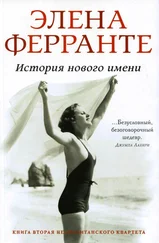
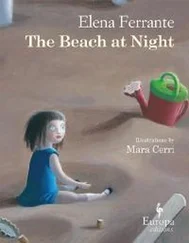
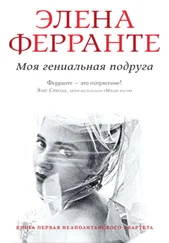
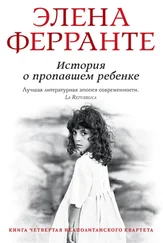
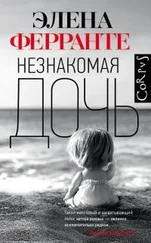
![Элена Ферранте - Дни одиночества [litres]](/books/404671/elena-ferrante-dni-odinochestva-litres-thumb.webp)



